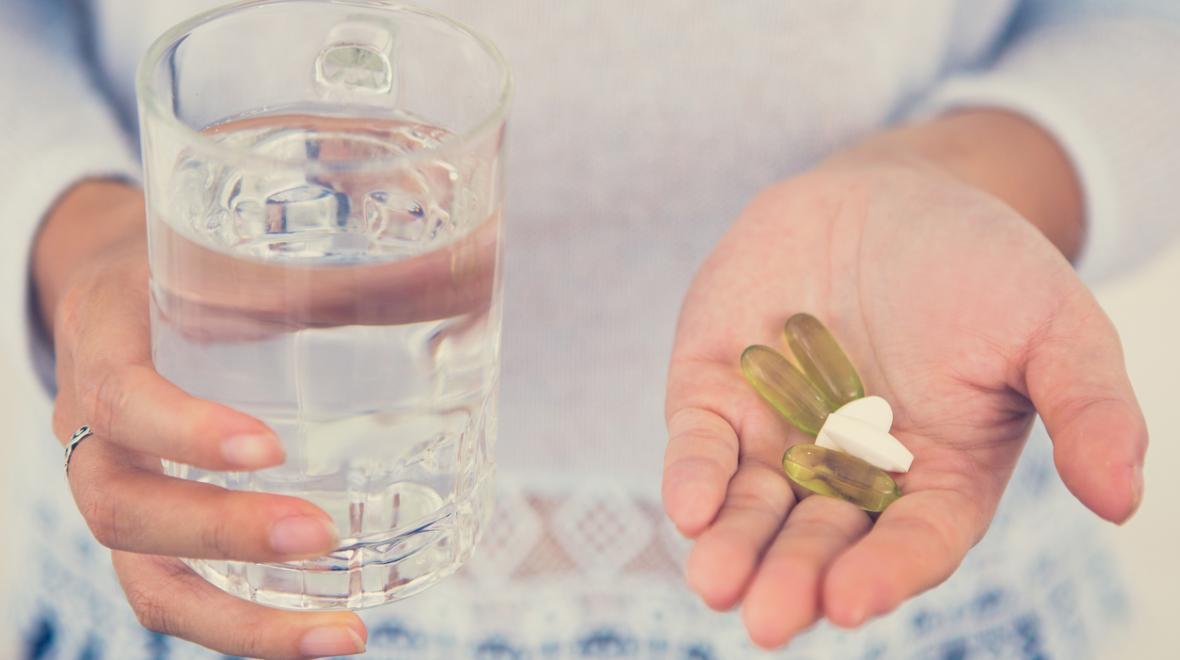
Forty-something Jennifer* broke into tears while listening to her doctor tell her that none of her eggs were likely to be good. The doctor recommended she use donor eggs to try to have a baby. But that wasn't was the route she wanted to take.
A few weeks later, one of her friends called her and told her about a doctor in New York City that might be a good option for a second opinion. With nothing to lose, she scheduled a Skype appointment with Dr. Norbert Gleicher of the Center for Human Reproduction.
Dr. Gleicher prescribed her a cocktail of supplements and medications to help with her specific condition and egg quality. Three months later, she conceived naturally and eventually gave birth to a healthy baby.
It’s important to work with a doctor or nutritionist to figure out the right supplements and doses for you, but here are a few supplements to consider that might help prepare your body for a healthy pregnancy.
DHEA. DHEA is a hormone made in the body that leads to the production of estrogen in women. However, at a certain age DHEA levels start to decrease, which can lead to fertility issues, such as decreased egg quality.
In initial studies, CHR noticed that positive effects on egg quality were first noticed after about 6 weeks of DHEA supplementation. The positive effects of DHEA continued to accumulate up to about 16–20 weeks of supplementation.
CoQ10. The antioxidant coenzyme Q10 (CoQ10) is found in most living things and is used by cells to process energy. CoQ10 decreases as people age so some fertility doctors suggest supplementation with CoQ10, as they believe it might help protect the DNA of eggs and mitochondria from long-term damage as well as enhance energy metabolism of eggs, which is needed for normal cell division.
Red raspberry leaf tea. Red raspberry leaf tea is best used when trying to conceive, as it is know to help strengthen the uterine lining. Many health care professionals also suggest drinking a cup or two a day to prevent pregnancy complications and miscarriage.
Probiotics. Probiotics help to increase healthy gut bacteria, and a healthy digestive system can help strengthen the immune system. Proper digestion of food and absorption of vitamins and minerals is key to good health and also helps with fertility.
Zinc. Zinc plays an important role in many key reproductive health areas including egg production, as a woman’s body needs zinc to produce mature eggs that are ripe for fertilization. Zinc is also one of the minerals that helps regulate hormone levels.
Selenium. Selenium is a mineral that protects the reproductive system from free radical damage and also promotes healthy cell division. Selenium also aids the development of healthy ovarian follicles, which are responsible for the production of eggs.
Fish oil and omega-3 fatty acids. Omega-3 fatty acids help to regulate hormones and have been shown to help fertility. They also assist in increasing cervical mucous, promoting ovulation and increasing blood flow to the reproductive organs. They also reduce inflammation and can help normalize a woman’s cycle.
* Last name withheld by request.











